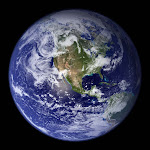
Without water, life would never be able to exist on Earth. Water does not have to be limited to that role, though. Dams installed in rivers can be used to generate hydropower, which is electricity generated from the kinetic energy of water. Hydropower generates twenty percent of the world's electricity, and is responsible for ninety-seven percent of electricity generated from renewable energy sources. Hydropower is so relatively prevalent, Norway uses hydropower to generate ninety-nine percent of its electricity. Hydropower, however, because of its dependence on dams, can only be harvested in rivers, and this form of electric generation fails to harvest the heat inherent in some water.
A relatively new method of harvesting water-based energy, called Ocean Thermal Energy Conversion, or OTEC, promises to harvest this energy. In fact, the energy in the world's oceans is so bountiful that only one-tenth of a percent of this energy could provide twenty times the energy consumed by the United States. The only requirement for an OTEC system is a difference of 20 degrees Celsius between the temperature of the surface water and the temperature of the water deep below the surface. Despite the promise of OTEC, the world has not yet financed a permanent OTEC plant. Still, OTEC is inspiring for some futurists, having proposed using OTEC to power conceptual underwater hotels and floating cities. Unlike hydropower, OTEC is not yet being used, but may hold much more potential. In fact, hydropower and OTEC could let humanity expand if the technology is advanced, and, combined with other renewable energy sources, will provide untold amounts of power for the world and eliminate the dependence of fossil fuels.
P.S.: Here is a video on OTEC from Youtube.

